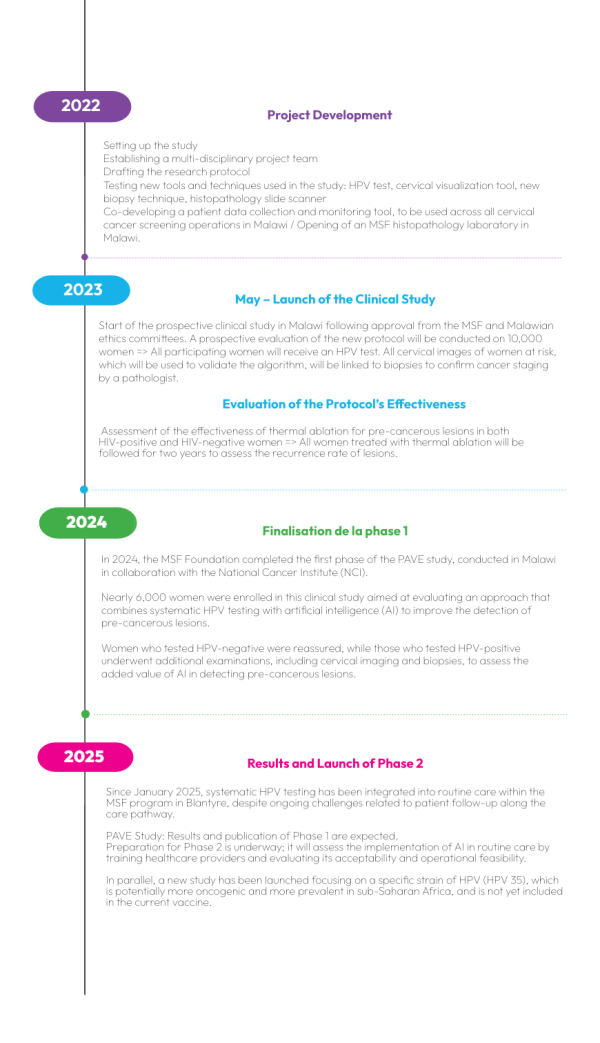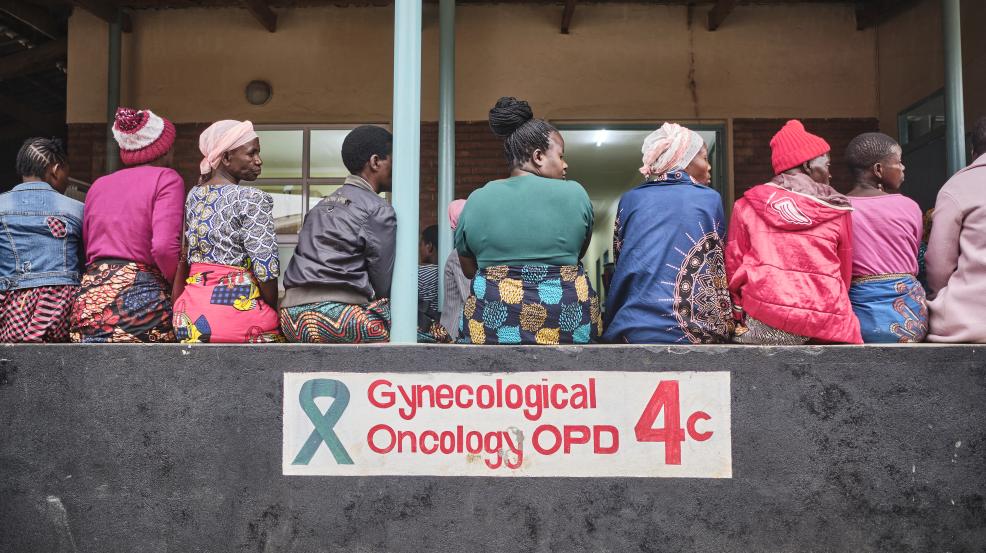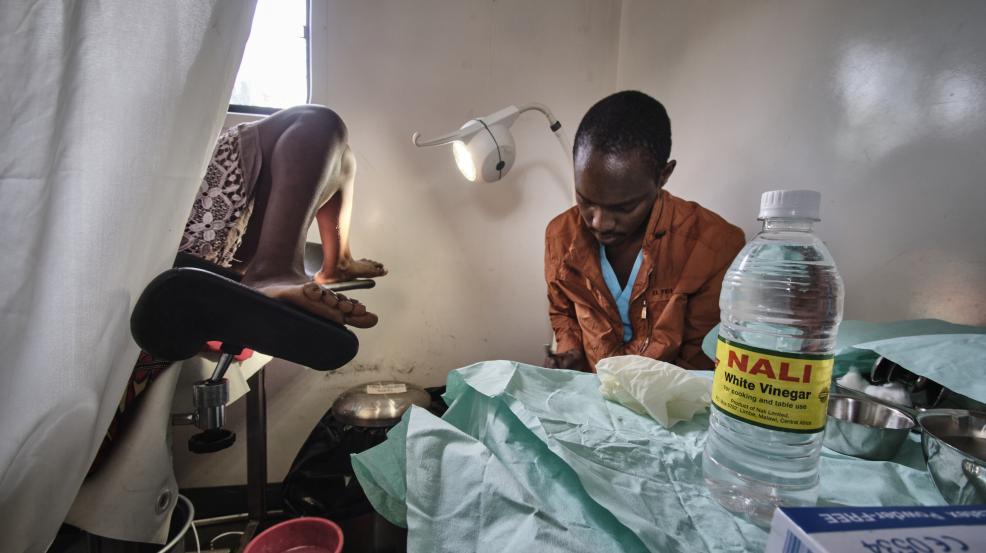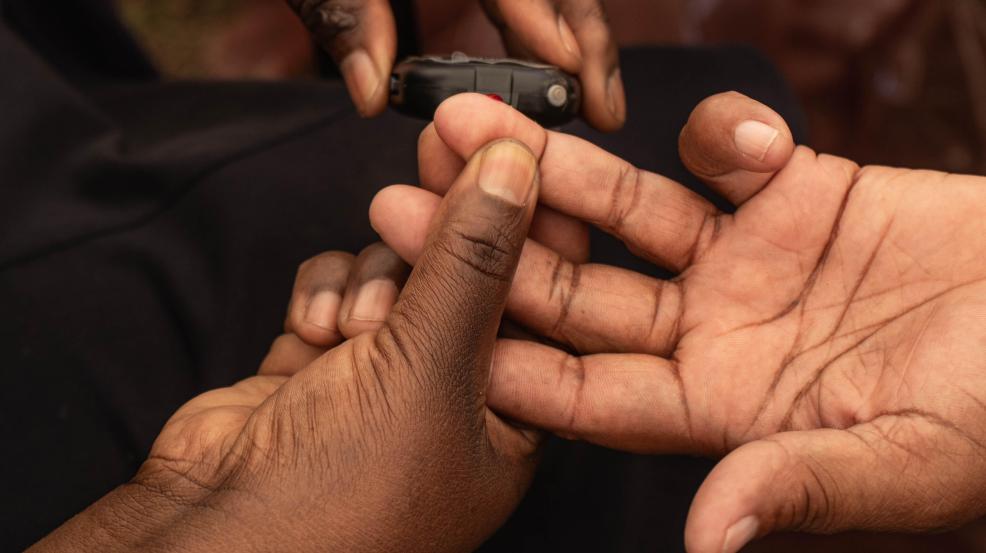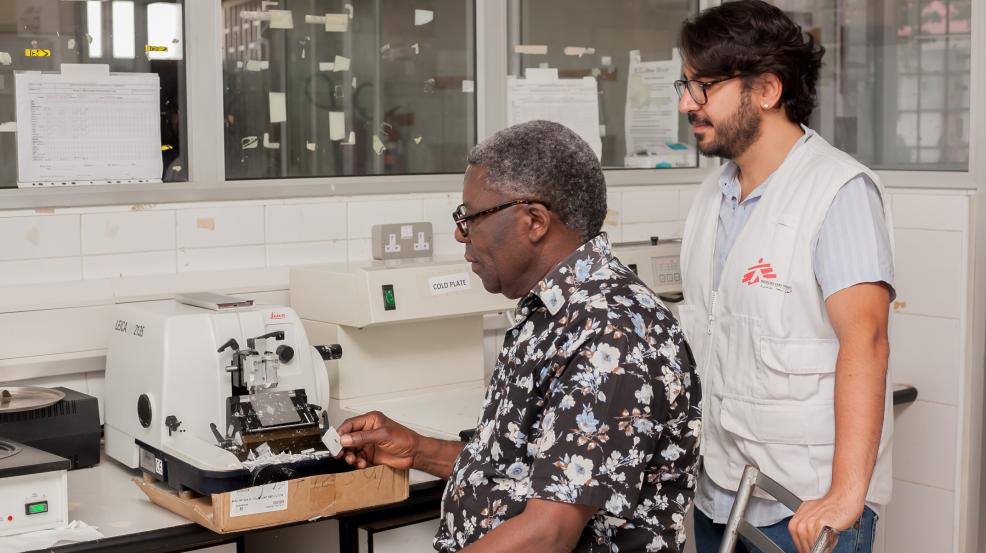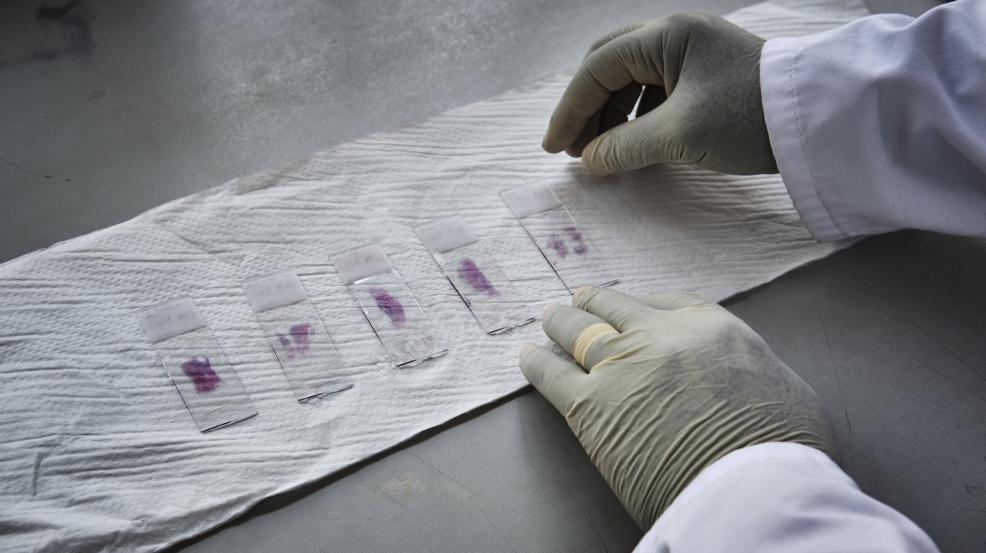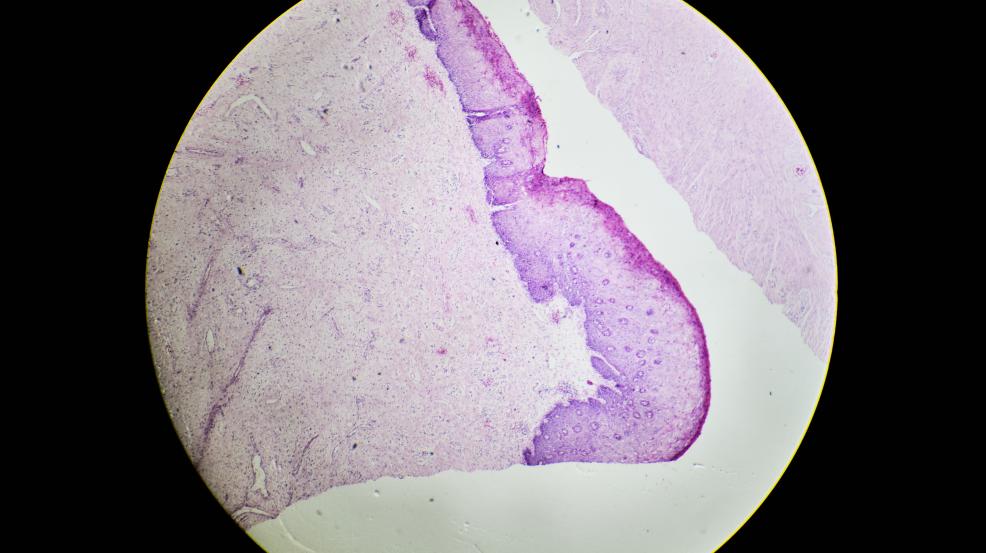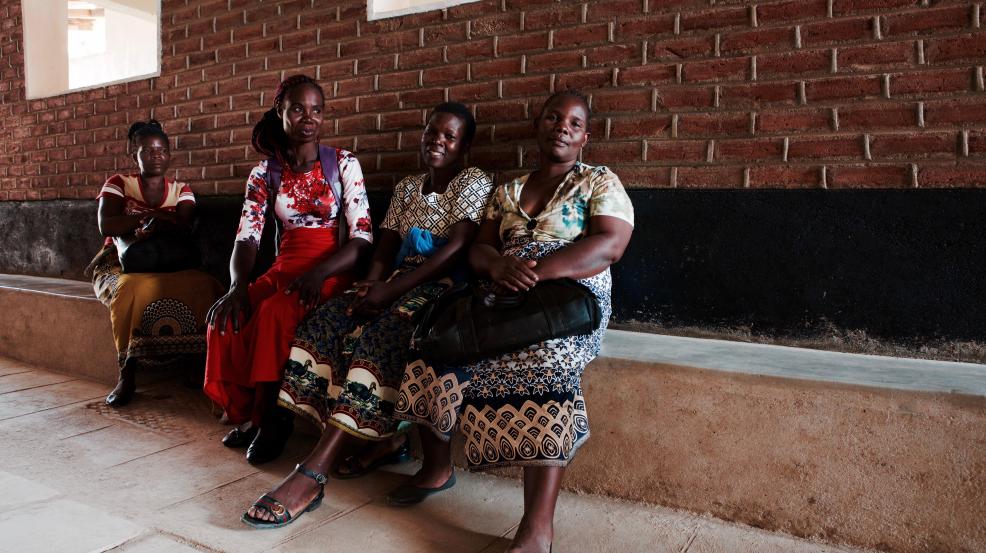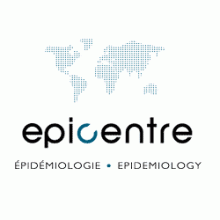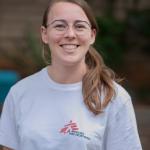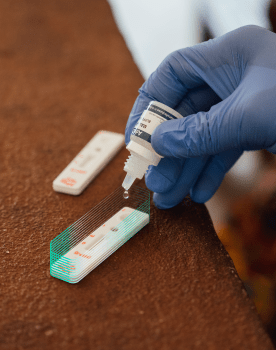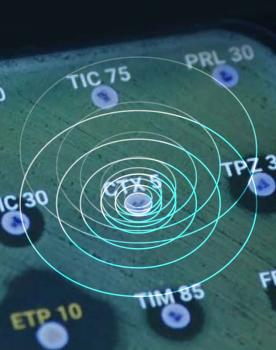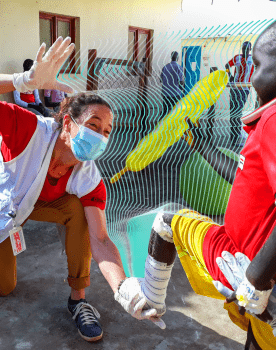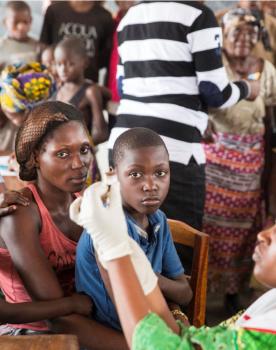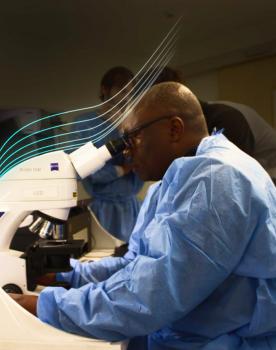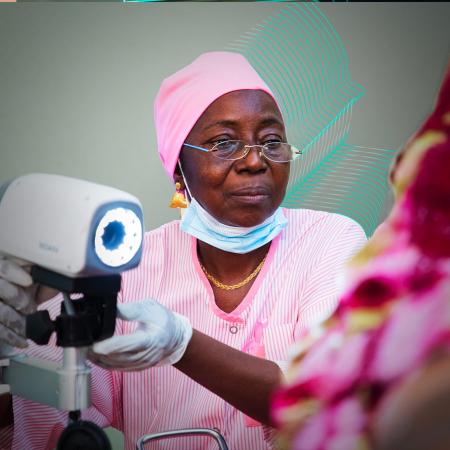
Fatoumata Tioye Coulibaly
AI4CC
Improving cervical cancer screening through the combined action of a PCR test and Artificial Intelligence
In brief
Cervical cancer is a global public health emergency, disproportionately affecting low- and middle-income countries (LMICs), where over 90% of deaths occur. Yet, it is a preventable disease through effective prevention measures: vaccination against human papillomavirus (HPV), early screening, and treatment of precancerous lesions. However, in many of the settings where MSF operates, these tools remain largely inaccessible.
To address this inequality in access to care, the MSF Foundation, in partnership with MSF and Epicentre, has launched a project to transform cervical cancer screening by joining the international PAVE (Papillomavirus and Automated Visual Evaluation) study, coordinated by the U.S. National Cancer Institute (NCI).
This project is based on a dual innovation:
- A simplified, more affordable and accessible HPV test
- An artificial intelligence (AI) tool capable of analyzing cervical images and automatically detecting precancerous lesions
The PAVE study involves 50,000 women across nine countries, including Malawi, where the MSF Foundation coordinated an initial clinical study involving 6,000 women. Results are expected in 2025.
Beyond the research itself, the ambition of the AI4CC (Artificial Intelligence for Cervical Cancer) project is to sustainably integrate these innovations into frontline healthcare practices, in order to improve access to screening and reduce cervical cancer mortality.
Status of the project
News
In detail
A Solvable but Forgotten Epidemic
Cervical cancer is caused in 95% of cases by a persistent infection with certain strains of the human papillomavirus (HPV). In high-income countries, widespread vaccination and regular screening have significantly reduced the incidence of the disease. But in low- and middle-income countries (LMICs), access to prevention remains extremely limited.
In Malawi, cervical cancer is the leading cause of cancer-related death among women. According to 2020 data (WCRF), the country recorded 4,145 new cases and 2,905 deaths.
Since 2018, MSF has established a structured program in Blantyre, based at Queen Elizabeth Central Hospital, to provide:
- VIA-based cervical screening
- Treatment of precancerous lesions (thermal ablation)
- Specialized surgery for early-stage cancers
- Palliative care for advanced cases
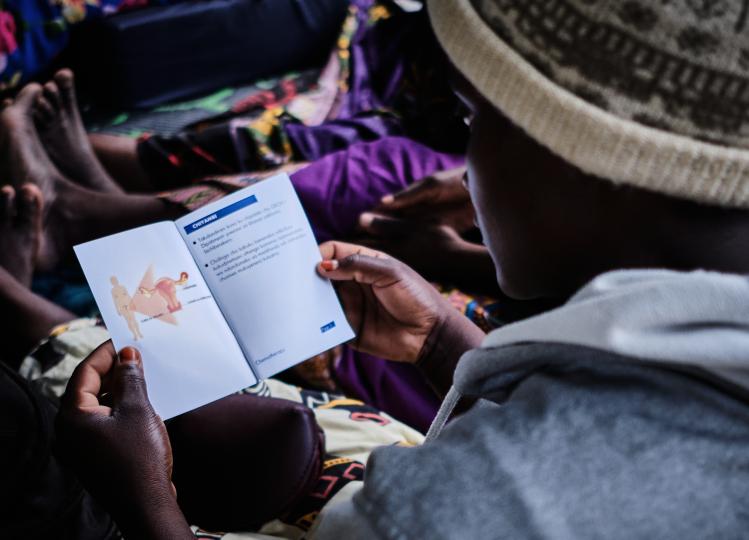
Diego Menjibar
THE PAVE STUDY: A UNIQUE INTERNATIONAL COLLABORATION
The PAVE study consortium, coordinated by the NCI, brings together medical and research institutions from around the world operating in nine countries: Brazil, Nigeria, El Salvador, Tanzania, Malawi, Eswatini, Cambodia, Honduras, and the Dominican Republic. The study involves a total of 50,000 women and aims to test a new cervical cancer screening approach on cohorts representative of the diverse LMIC contexts.
The objectives are to:
- Validate the performance of a next-generation HPV test;
- Evaluate an AI algorithm capable of assisting healthcare providers in interpreting VIA images by automating a task currently prone to human error;
- Pave the way for open-source integration of this technology into local health systems.
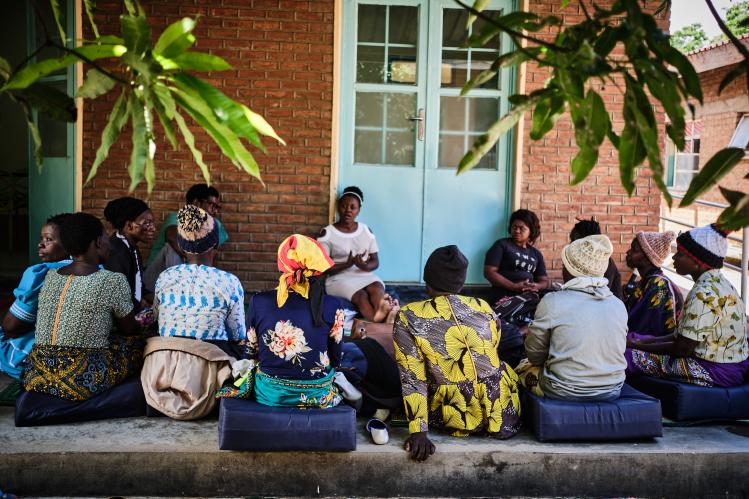
En janvier 2021, des groupes de soutien ont été créés, un espace où les femmes peuvent partager leurs expériences personnelles de la maladie.
Diego Menjibar
THE CENTRAL ROLE OF THE MSF FOUNDATION
Within this consortium, the MSF Foundation undertakes several key responsibilities:
- Operational coordination of the study in Malawi (6,000 women);
- Funding of additional studies focused on the most vulnerable populations;
- Supporting MSF teams and local health authorities to ensure the sustainable adoption of the developed tools;
- Preparing for the phase of integrating AI into routine clinical practice.
This project, at the intersection of research, medicine, and technological innovation, reflects the MSF Foundation’s commitment to developing concrete, sustainable, and accessible solutions to serve the most vulnerable patients.
